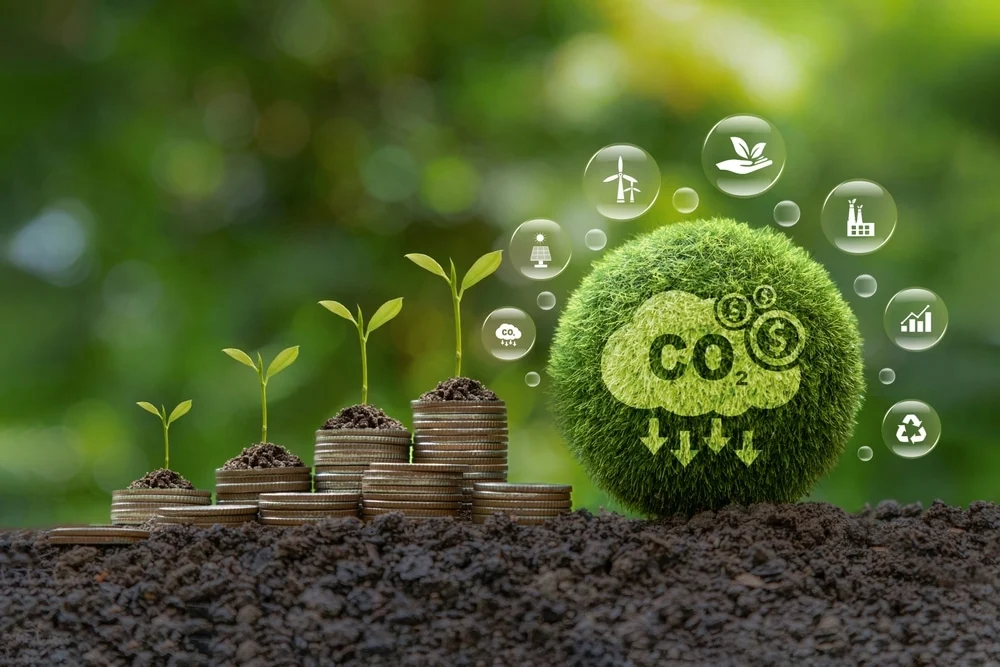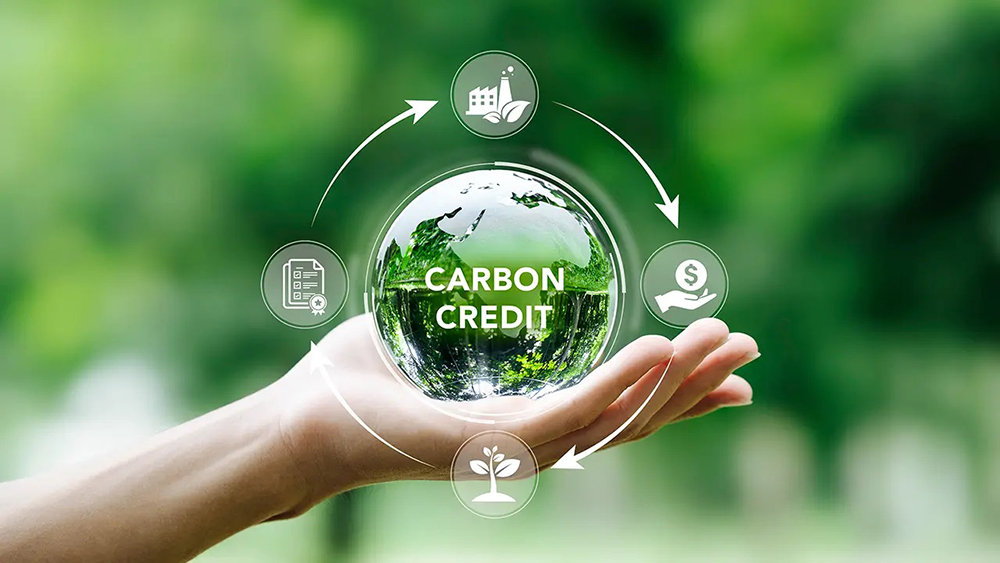Climate change is no longer a distant concern but a pressing global challenge. As governments, corporations, and communities push toward net-zero targets, the concept of carbon credits has emerged as a vital tool. For Vietnam—an emerging economy with ambitious green goals—carbon credits open a pathway for enterprises to participate in global sustainability efforts while unlocking new business opportunities.
What Are Carbon Credits?
Carbon credits are tradable certificates that represent the reduction or removal of one metric ton of carbon dioxide (CO₂) or its equivalent greenhouse gases from the atmosphere.
- How they work: Businesses that reduce emissions beyond their required levels can sell excess credits. Others that find it difficult to reduce emissions can purchase these credits to offset their footprint.
- Global purpose: They provide a market-driven incentive for companies to cut emissions, foster innovation, and support projects like reforestation, renewable energy, or sustainable agriculture.
Why Do Carbon Credits Matter?
Carbon credits serve two major purposes:
- Compliance: Many countries have set up carbon markets where businesses are legally required to offset emissions.
- Voluntary markets: Companies not under strict regulation can still buy credits to meet sustainability goals or boost their ESG (Environmental, Social, and Governance) profile.
For Vietnamese businesses, engaging in these markets can enhance reputation, attract investors, and open doors to global trade.

Opportunities for Vietnamese Businesses
Vietnam’s unique position offers multiple opportunities in the carbon credit space:
Agriculture and Forestry Projects
With vast forest areas, Vietnam can participate in REDD+ (Reducing Emissions from Deforestation and Degradation) projects. Sustainable farming practices, such as low-carbon rice cultivation, can generate credits while improving food security.
Renewable Energy Development
Solar, wind, and biomass energy projects not only reduce emissions but also create credits that can be sold internationally. Foreign investors are actively seeking partnerships in Vietnam’s clean energy sector.
Export Competitiveness
Global buyers increasingly demand low-carbon products. By adopting carbon reduction strategies and trading credits, Vietnamese exporters can gain a competitive advantage in markets like the EU and Japan.
Financing for Green Innovation
Carbon credit revenues can fund new technologies such as waste-to-energy solutions, circular economy initiatives, or energy efficiency upgrades in factories.
Challenges Ahead
Despite the potential, challenges remain:
- Lack of a fully developed domestic carbon market.
- Limited awareness among SMEs.
- Complex certification and verification processes for generating credits.
However, the Vietnamese government has already announced a carbon market roadmap by 2030, signaling strong policy support.
Carbon credits are not just a global compliance mechanism—they represent a golden opportunity for Vietnamese businesses to align with sustainability, attract investment, and expand internationally. By embracing carbon reduction and credit trading early, enterprises in Vietnam can secure a leadership role in the country’s transition to a low-carbon economy.
FAQ
What exactly is a carbon credit?
A carbon credit is a tradable permit equal to one ton of CO₂ emissions reduced or removed.
Can small businesses in Vietnam join carbon markets?
Yes, through sustainable farming, forestry, or energy-efficiency projects, SMEs can generate credits.
Do carbon credits bring financial benefits?
Yes, companies can sell surplus credits to global buyers, creating additional revenue streams.
How do carbon credits link to ESG goals?
Purchasing or generating credits helps businesses demonstrate responsibility and attract ESG-focused investors.
Is Vietnam’s carbon market open yet?
A pilot carbon credit exchange is planned before 2028, with full operation expected by 2030.


One comment
buy xanax without prescrition
October 30, 2025 at 8:28 am
最佳成人网站 提供高质量的成人娱乐内容。选择
可靠中心 以获得安全且愉快的观看体验。
My web-site: buy xanax without prescrition